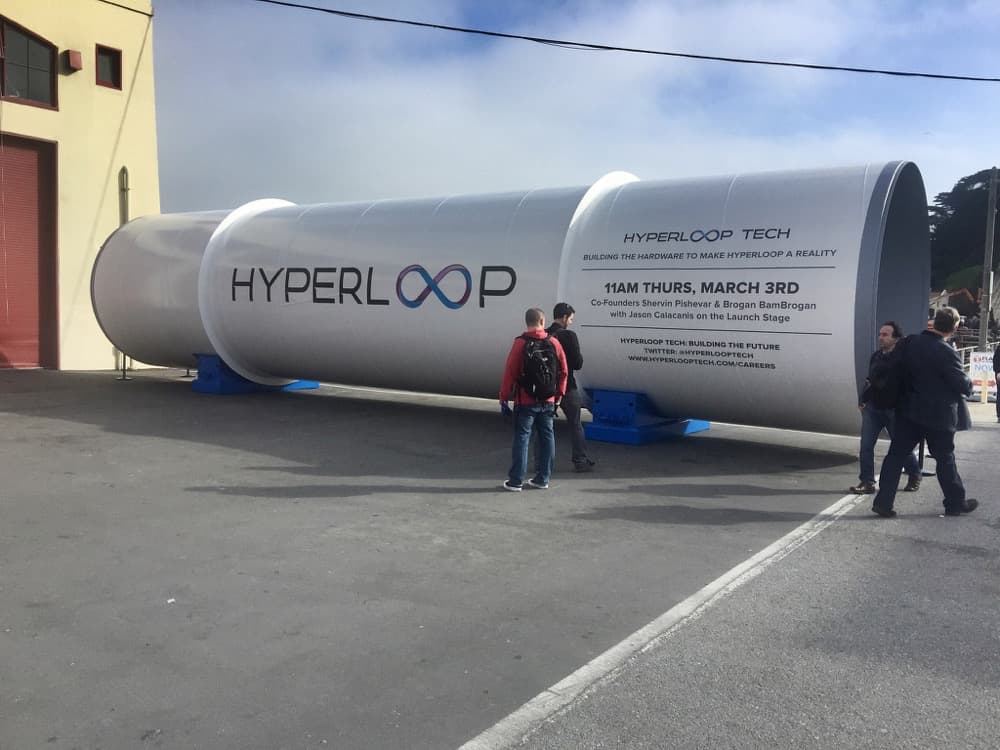
Colorado's Department of Transportation is working closely with Hyperloop One to study the potential for the unproven new transit technology on the Front Range.
Hyperloop One has been running a publicity/planning campaign to select potential routes for a transit system that would send pods hurtling down vacuum-sealed tunnels. A Colorado route from Cheyenne to Denver and Pueblo is among the ten global finalists, the company announced today.
Among those ten finalists, Colorado got a little extra attention in this morning's announcement. CDOT and Hyperloop One will work together to begin a "feasibility study."
Basically, they'll be asking whether there's enough demand to support the system, and they'll be examining potential routes, relevant regulations and other such factors. The study is expected to cost between $500,000 and $1 million, paid for by both groups, according to CDOT spokesperson Amy Ford.
The study should take about a year, while Hyperloop One is looking at three to five years for installation of a potential route, Ford said. "We’re hoping to match with that," she said. "We’re thinking more broadly about how it fits into our overall transportation network here in Colorado.”
The Colorado route under discussion would run from Cheyenne to Pueblo. A draft version shows a branch out to Vail as well, with the whole system totaling 360 miles. The route was submitted with heavy involvement from CDOT, including promotional appearances from CDOT leadership.
Routes in the Midwest, Texas and Florida also are in the "finals," while the rest are spread around the world.
Of course, Hyperloop should generally be taken with a grain of rock salt. There's no guarantee that a functioning Hyperloop transit system will be built anywhere, much less along the Front Range.
In the four years since Elon Musk started talking about the technology, Hyperloop One has achieved test speeds of about 200 mph, compared to the 700-plus mph that Musk said would eventually be possible.
This announcement lines up with CDOT's general strategy of publicly embracing and promoting high-tech ideas, such as autonomous safety vehicles for workers and its overall RoadX project.
At the same time, Gov. John Hickenlooper has acknowledged that the state doesn't have the money to do basic stuff like fix its main highways, and CDOT's warning of a huge increase in delays on I-70's mountain corridor.
“We don’t even have the decency to maintain the roads and bridges, the assets and infrastructure that our parents and grandparents had the decency to build for us — much less build the infrastructure our kids are going to need in the 21st century,” Sen. Michael Bennet said this summer.
The design and construction giant AECOM is also working on the study.
This story was updated on Sept. 15 with comment from Amy Ford of CDOT.












